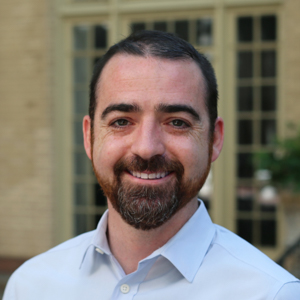 Civility is not a tactic or a sentiment. It is the determined choice of trust over cynicism, of community over chaos. – George W. Bush
Civility is not a tactic or a sentiment. It is the determined choice of trust over cynicism, of community over chaos. – George W. Bush
Finally, beloved, whatever is true, whatever is honorable, whatever is just, whatever is pure, whatever is pleasing, whatever is commendable, if there is any excellence and if there is anything worthy of praise, think about these things. – Phil 4: 8
Inherently, if we feel separate, we’re going to go into domination patterns. That is the culture we’re steeped in – a culture of separation, competition, and hierarchy. – Sebene Selassie
What is civility? How do you define it? Where did you last experience being civil? A lot of people might argue it’s been missing in our country for a long time, perhaps even more as the CoVid Pandemic has worn on and on.
Once on a trip in the Colorado Rockies, in 1968, Uncle Mac drove his pickup and camper top up a steep narrow back road and crested the hill. We were a little in shock, when just then, a guy riding bare back on a beautiful bronze horse, came out of the thick pines, up the embankment and into the road just enough that Uncle Mac swerved a little to miss him — long thick hair draped down his back, shirtless, tan, with a woman hanging on from behind. Uncle Mac slammed the brakes and shouted, “Uncivilized Barbarian!” We laughed.
That’s one of my earliest memories of hearing any variant of the word “civil” being uttered. I’m sure I’d heard about civilization in school, even elementary. But that’s one of the times I always remember. I’m pretty sure it had something to do with the incongruity, and revealing disparity, between my 50 year old, bachelor and graying uncle (with a pickup full of pre-adolescent boys in tow) and a taught, tan, hairy 30 year-old man on a powerful animal with a beautiful woman riding behind. Being “civilized” apparently had something to do with lacking and being unhappy.
The other time I remember the word “civility” being mentioned was during the Marches in Selma, 1965. I was maybe 10. My mother was watching the marchers and Dr. King, and she said something like, “Why can’t they be more civil!?”
I think she was genuinely worried for the marchers safety, as much as she knew how to be, given her own cultural biases and un-questioned privilege. Her attitude and consciousness changed greatly over the years. But I remember thinking that civility had something to do with behaving properly, politely, the way my grandmother always insisted I behave in public.
I came to realize her sense of incivility was due to the feeling of tension and the perception of threat because our norms were being challenged. Indeed, Dr. Martin Luther King, Jr. addressed this tension in his Letter from Birmingham Jail, written especially to his white clergy colleagues who were critical of his breaking the “rules” of polite and “civil” behavior.
“Nonviolent direct action seeks to create such a crisis and foster such tension that a community which has constantly refused to negotiate is forced to confront the issue.”
So, civility as a matter of etiquette and decorum seemed a distinct privilege of those who “have” and the challenges to that systemic inequality posed by those who “have not” was deemed “civil disobedience.” I wonder if the more pious religious leaders who critiqued Jesus for his association with outcast, marginalized sinners considered his actions uncivil or civil disobedience.
Perhaps there was (and still is) more “obedience” in that kind of civility than “disobedience.” Could we consider MLK’s behavior, like Jesus’, obedience to a higher civility?
Civility is a word which had lost a lot of substance for me over the years. Not that I don’t value politeness, kindness, respect, being “appropriately attired” (well, maybe less so the latter…). But the word had grown thin and unhelpful to me in a world increasingly binary and divisive.
And yet, there is something about Jesus’ life, not to mention the admonitions of the Apostle Paul, that transcended this kind of divisiveness, that called people to a wider, non-binary, unifying vision. Maybe there is a place for civility in our time, rightly understood.
This Sunday, Rev. Linda McDermott and I will finish our series as we explore the final virtue that we might practice as a way of bringing more hope and interest to times that seem otherwise. This Sunday we’ll take a look at the virtue of Adventurous Civility.
When you least expect to find hope in an abusive, scary world, civility calls out our wildest possibilities.
See you Sunday, August 23, 11:11 a.m!
![]()
Rev. Tom McDermott
Associate Pastor of eleven:eleven
 Crafting Difficult Conversations: “Listening for Understanding” A Master Class with Estrus Tucker
Crafting Difficult Conversations: “Listening for Understanding” A Master Class with Estrus Tucker
Mondays, August 24 & 31, 2020
7:00 pm – 7:45 pm | Zoom
Hosted by Rev. Tom McDermott
In this mask-wearing, social-distancing, hyper-sensitive world we’re sharing these days, it can be hard to connect with others in our community and nation in which our conversations are mostly limited to online formats and the social media echo chambers with which we surround ourselves.
In this two-part workshop centered on transformative listening led by renowned facilitator Estrus Tucker, participants will learn the distinction between listening to understand and listening with intention, how to utilize these conversational tools to facilitate open, authentic connection with the human story, and will walk away with experiential practice to use in day-to-day conversation.

